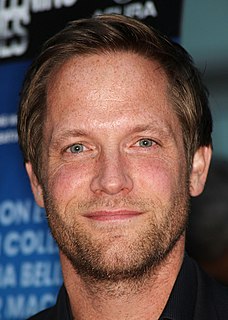A Quote by Julien Baker
Me at parties: 'Like, do you want to know the historical context of the prophet Jeremiah?'
Quote Topics
Related Quotes
What is so striking in the book of Jeremiah is how many times it is impossible to distinguish between the words of Jeremiah and the words of God, when deep feelings are being expressed. That is probably intentional. The prophet not only speaks what God says, he also feels what God feels. The tears of the prophet are the tears of God.
When God grabs you by the scruff of the neck then although theoretically you have a freedom to say 'no', in another sense, actually, you can't say no because it's like Jeremiah. 'God, you have cheated me. You called me to be a prophet against the people that I love, and all that I proclaim is words of doom and judgement.' And yet if I say "I will shut up", I can't.
I always want to read the script and know everything and at least understand the context of the world that you're in and why you're there and all that stuff. It's good to know something. I like to know, but I've never been one of these, 'Just show me my stuff,' no, I like to know what the whole picture is so I can understand how I fit into it.
I was trained as a philosopher never to put philosophers and their ideas into historical contexts, since historical context has nothing to do with the validity of the philosopher's positions. I agree that assessing validity and contextualizing historically are two entirely distinct matters and not to be confused with one another. And yet that firm distinction doesn't lead me to endorse the usual way in which history of philosophy is presented.
The Bible is an ancient text from an ancient context. We live thousands of miles and thousands of years away from that context, which also represents different cultures. Archaeology is a modern means of revealing both the lost record of the ancient world, and the historical and social world of the Bible. While the purpose of archaeology is not to prove the historicity of the people and events recorded in Scripture, it can help immeasurably to confirm the historical reality and accuracy of the Bible and to demonstrate that faith has a factual foundation.



































